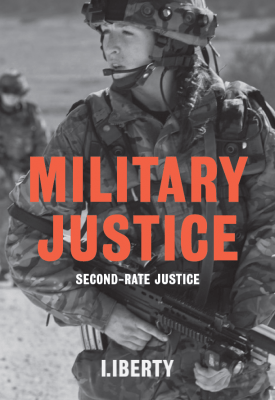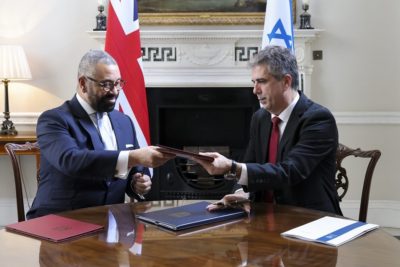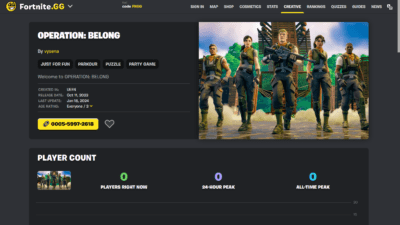Personnel are being failed by the military justice system

Liberty are doing fantastic work in pushing for personnel to have adequate and equal legal protection, and in defending the Human Rights Act.
The failings in the military justice system that they detail increase our own concerns that young and vulnerable recruits are misled by manipulative military recruitment advertising and are not aware of the myriad ways in which the military system may fail them.
Not a system where women are ‘listened to.’
Recent military recruitment advertising has strategically targeted young people with videos claiming that the military will take better care of women, LGTBQI+ and BAME (Black, Asian and Minority Ethnic) communities than civilian employers. The military’s record on safeguarding rights and welfare is, however, woefully inadequate – and they recruit the youngest soldiers in Europe.
‘There is something very badly wrong with the way in which the armed forces investigates and prosecutes sexual crime.’ (p.53)
In Will I be listened to in the Army (Army recruitment video, 2018), an animated woman is small, vulnerable, overlooked and abused in the civilian world. She is then rescued by the military who empower her and give her a voice.
Yet Liberty’s ‘Military Justice’ report raises very serious concerns about sexual offending in the armed forces. The overwhelming majority of sexual offending in the forces is perpetrated against women, by men. (p.52) The vast majority of these offences are investigated by the Service Police, in the UK. (p.52) The conviction rate is shocking. In the last three years, there were 99 rape allegations reported, 48 of which got to court martial, and just 2 resulted in conviction. (p.53) This is a conviction rate of 4.2%, compared to 32-46% (depending on the age of the perpetrator) in the civilian system – which as Liberty say, is ‘bad enough.’ (p.53)
Liberty state, ‘The Army’s own 2018 Sexual Harassment Survey recorded that people who complained of sexual harassment reported very poor outcomes’ and that ‘targeted sexualised behaviours that had caused respondents to feel particularly upset had increased…since 2015.’ Targeted sexualised behaviours were reported by 18% of respondent service women. (p.94)
‘In an environment where women are already a significant minority, very particular care will need to be taken to ensure that unhealthy and predatory attitudes do not prevail.’ (p.53)
 Liberty say that, where the victim had lodged a complaint, there are then ‘very high rates of dissatisfaction’ with the outcomes of the complaints investigation. (p. 95) Three quarters of those who had made a formal complaint said they had suffered negative consequences as a result, and nine in ten service personnel had thought about leaving the Army. (p.95)
Liberty say that, where the victim had lodged a complaint, there are then ‘very high rates of dissatisfaction’ with the outcomes of the complaints investigation. (p. 95) Three quarters of those who had made a formal complaint said they had suffered negative consequences as a result, and nine in ten service personnel had thought about leaving the Army. (p.95)
According to Liberty, ‘the figures indicate that there is something very badly wrong with the way in which the armed forces investigate and prosecute sexual crime.’ (p.53) They are calling for all serious offences including grievous bodily harm and sexual assault, to be investigated by the civilian police instead of the Service Police, prosecuted by the Crown Prosecution Service and sent to trial at Crown Court.
For this to happen, rape needs to be added to the list of what the MoD refers to as ‘very serious crimes.’ (pp.54-55) We agree with Liberty that the fact that it is not yet included on this list is, is ‘to say the least, surprising… and given that a disproportionate number of victims of rape are likely to be women, the exclusion of these offences from the Circular is discriminatory on grounds of gender.’ (p.55)
Serious offences must be investigated by independent police forces
Liberty argue that the Service Police are likely to lack the ‘very particular skill and expertise’ required to investigate serious sexual crime. (p.18) The Service Police see themselves as ‘soldiers first’ and police officers second, indicating an ‘ingrained lack of independence (or certainly a risk of the same) as they may be ‘inclined to protect what they see as the interests of the armed forces rather than to discharge their functions as police officers, wholly and truly independently of any outside pressures or influences.’ (pp.46-47)
For multiple reasons, the true extent of sexual offences in the armed forces is not known. (p.17) There is evidence that sexual offences have been downgraded so that they become a non-sexual offence; they can be dealt with by a Commanding Officer and do not go to court at all. (p.18) Numerous sexual offences are not included in the MoD’s annual bulletin of sexual offences in the Service Justice System. (p.20) Furthermore, the MoD does not publish or obtain any data about serving personnel who are dealt with in the civilian justice system. (p.17)
As well as adding rape onto the list of ‘very serious offences’ that should always be referred to by the police for investigation, Liberty recommend that this should extend to all serious offences including other serious sexual offences and serious physical violence. (p.57)
They point to the collapse of the trial of a number of Army instructors last year, where the Judge Advocate dismissed the case and fiercely criticised the conduct of the Royal Military Police, describing their investigation as ‘seriously flawed’ and ‘in direct breach of their duty to investigate fairly and objectively.’ (p.58. See our article about the trial.) This case involved allegations made by teenage army recruits. Liberty also pointed to a sexual assault trial at Court Martial last year which resulted in acquittal and which was followed by ‘similarly critical remarks’ being made by the Judge Advocate about the Royal Military Police. (p.58)
Making a complaint is ‘unbearable’
Liberty writes that it is ‘completely unacceptable’ that ‘there is no accessible, effective or meaningful complaints system for service personnel wishing to complain about the Service Police.’ (p.67) For civilians, there is the Independent Office of Police Conduct (formerly IPPC) – a statutorily independent body whose sole purpose is to regulate the conduct of police officers and handle police complaints. (p.62) There is nothing comparable for the Service police; Liberty state that the Service Complaints Ombudsman is not able to provide adequate independent oversight, has ‘severely deficient powers’ and in any case has not actually dealt with a single military police complaint since the establishment of her office. (p.67)
‘Most complainants that contact Liberty report finding the (service complaints) process unbearable, especially those that have been the victim of sexual harassment.’ (p.85)
While the Army sells itself as an inclusive, welcoming and positive employer for diverse communities, female and BAME service personnel are ‘still unacceptably over-represented in the complaints system.’ (p.95) An alarmingly large proportion of these complaints were for bullying, harassment and discrimination. (p.95) Liberty cited concerns from the Ombudsman about ‘continued reports from personnel that they have been discouraged from complaining by service complaints handlers, or even advised that doing so could harm their careers.’ (p.95)
Liberty also detail the insufficiencies of the court martial system, calling among other things for boards (juries) at the Court Martial to have more members, and to be permitted to include Other Ranks. (pp.80, 67-73)
We have pulled out some of the key points of Liberty’s new report but there is a great deal of other important information contained within it – including about the rule of law and human rights during armed conflict – and background information and case studies. We highly recommend reading it in full.
Entering the military means 16 and 17 year olds, legally children, are subject to an inadequate and incompetent legal system
The military is evidently not a system in which young people recruited at the youngest age in Europe, are covered by sufficient welfare and legal protections. Indeed, minors are entering into a second rate legal system with a shockingly bad track record for investigating and prosecuting offences such as sexual crime – which they do not even officially recognise as a serious offence.
We want to draw attention to the sharp differences between the severe and endemic problems with sexual harassment and bullying, and how it is investigated and prosecuted; and the claims made in military recruitment campaigns which claim that young people will be valued, respected and cared for – and some of which target BAME communities, women and LGBTQ+ young people.
The military continues, despite calls to desist doing so from human rights authorities including the UN Committee on the Rights of the Child, and the UK’s four Children’s Commissioners, to recruit children. We and other campaigners argue that the rights, welfare and best interests of young people should not come secondary to the needs of the military. We also argue that rather than recruiting from young and vulnerable groups, the military should do more to mitigate its poor retention of personnel.
One of the ways it could do so is by listening to Liberty and making vital changes to protect the legal rights of its personnel – particularly those of women who are clearly being so badly let down in the current system. As Liberty say, ‘these matters are absolutely fundamental to operational effectiveness – if you don’t look after your people, and help and support them if and when things go wrong, they will leave.’ (p.98)
The Armed Forces Human Rights Helpline will be available Monday-Friday 10:00-16:00 on 020 3102 9313.
See more: equality, human rights, recruitment age, risks, military justice system
Like what you read?
> Sign up for our newsletter or blog notifications
> Support our work – from just £2 a month










